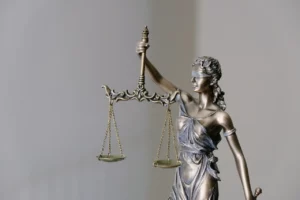Navigating Personal Injury Claims After a Florida Theme Park Accident

Florida’s theme parks attract millions of visitors each year with their thrilling rides, vibrant attractions, and family-friendly entertainment. However, accidents can and do happen, leading to injuries that may require medical attention and legal action. Understanding how to navigate personal injury claims after a Florida theme park accident is crucial for securing the compensation you deserve. Here’s a guide to help you through the process.
Immediate Steps After an Accident
- Seek Medical Attention: Your health and safety are the top priorities. Seek immediate medical help for any injuries, even if they seem minor at first.
- Report the Incident: Notify park staff and management about the accident. Ensure that an official report is filed and request a copy for your records.
- Document Everything: Take photos of the accident scene, your injuries, and any contributing factors (e.g., faulty equipment, unsafe conditions). Collect contact information from witnesses who can support your claim.
Understanding Liability
Determining liability is a critical step in any personal injury claim. In theme park accidents, several parties could be liable:
- Theme Park Operators: Parks have a duty to ensure the safety of their premises and rides. If negligence on the part of the park led to your injury, they might be held liable.
- Ride Manufacturers: If a ride malfunctioned due to a design or manufacturing defect, the manufacturer could be held responsible.
- Maintenance Contractors: Companies responsible for maintaining rides and facilities may be liable if improper maintenance led to the accident.
Common Causes of Theme Park Accidents
Understanding the common causes of theme park accidents can help in building your case:
- Ride Malfunctions: Mechanical failures, operator errors, or design flaws can cause injuries.
- Slip and Fall Accidents: Wet floors, uneven surfaces, or poor lighting can lead to falls.
- Falling Objects: Items from rides or attractions may fall and injure visitors.
- Food Poisoning: Contaminated food or drink sold at the park can lead to illness.
Filing a Personal Injury Claim
Filing a personal injury claim involves several steps:
- Consult an Attorney: An experienced personal injury attorney can evaluate your case, advise you on your legal options, and guide you through the process.
- Gather Evidence: Collect all relevant documentation, including medical records, accident reports, witness statements, and photographs.
- Determine Damages: Assess the full extent of your damages, including medical expenses, lost wages, pain and suffering, and any long-term impacts.
- Negotiate with Insurance Companies: Your attorney can handle communications and negotiations with the park’s insurance company to seek a fair settlement.
- File a Lawsuit if Necessary: If a fair settlement cannot be reached, your attorney may recommend filing a lawsuit to pursue compensation through the courts.
Statute of Limitations
In Florida, personal injury claims are subject to a statute of limitations. This means you have a limited time to file a claim. Typically, you have four years from the date of the accident to file a personal injury lawsuit. However, it’s essential to act quickly to preserve evidence and build a strong case.
Conclusion
Navigating personal injury claims after a Florida theme park accident can be complex, but understanding the process and taking the appropriate steps can make a significant difference in the outcome of your case. Prioritize your health, gather detailed documentation, and consult with a knowledgeable personal injury attorney to ensure you receive the compensation you deserve. By being informed and proactive, you can effectively address the challenges of a theme park accident and protect your legal rights.

 Call Us Today
- It's Free
Call Us Today
- It's Free